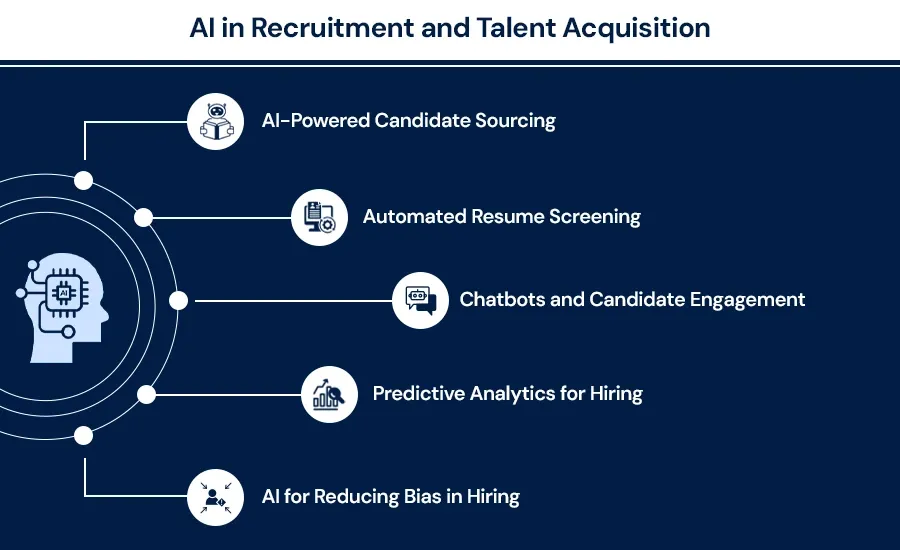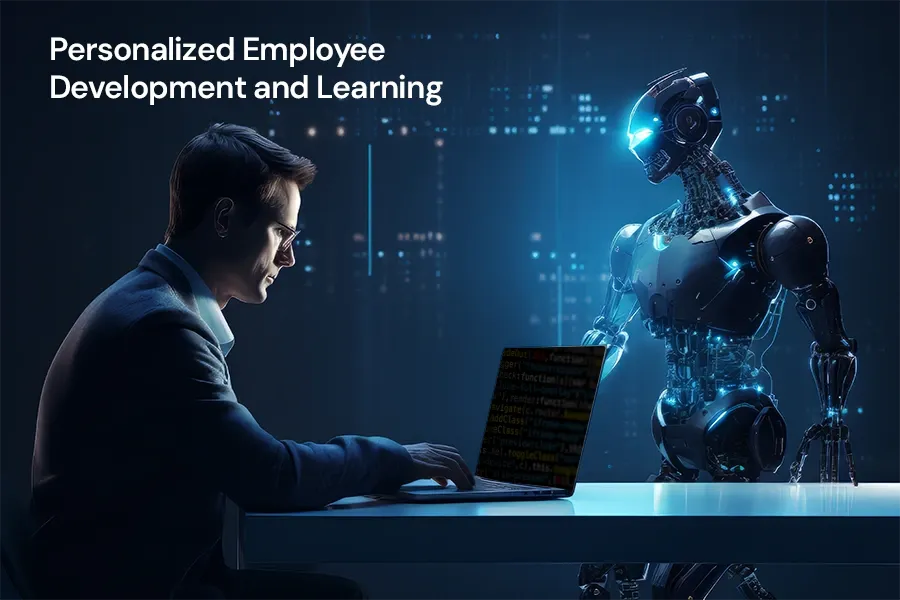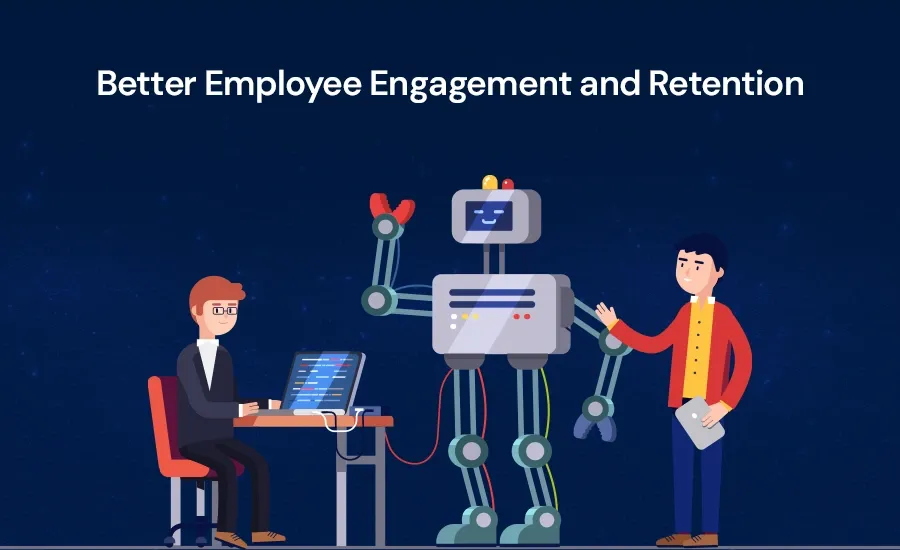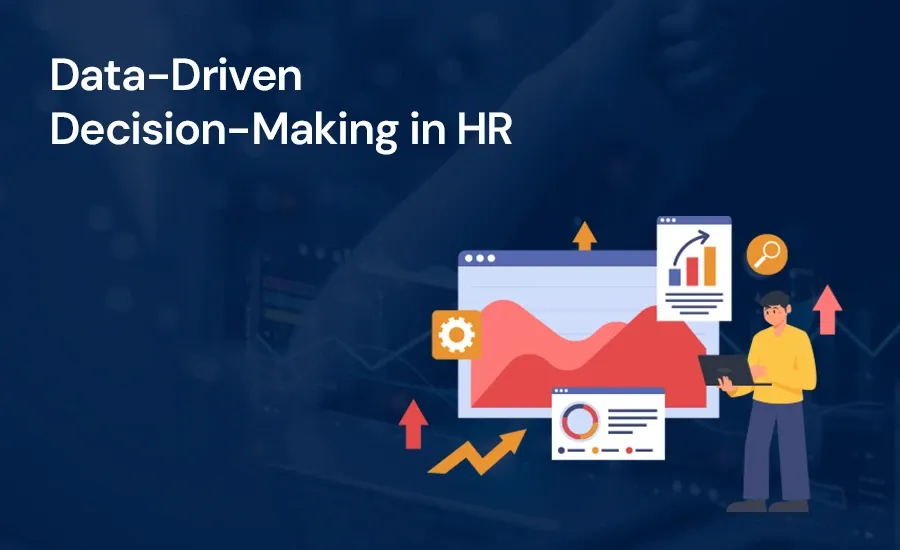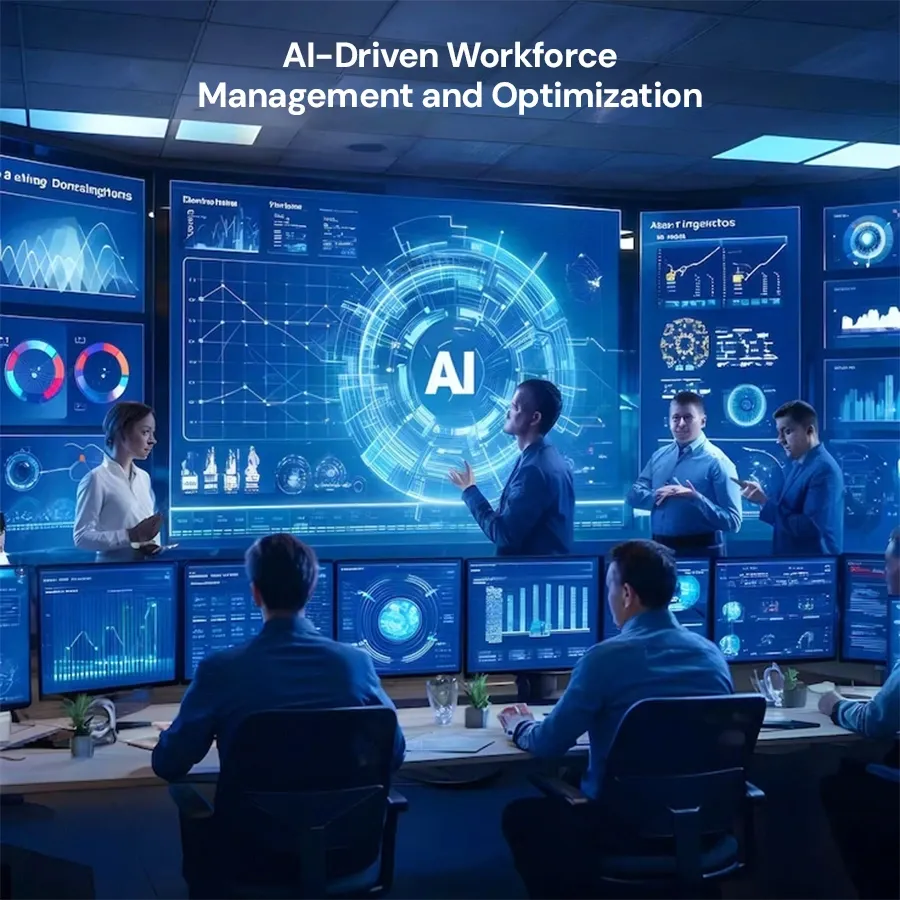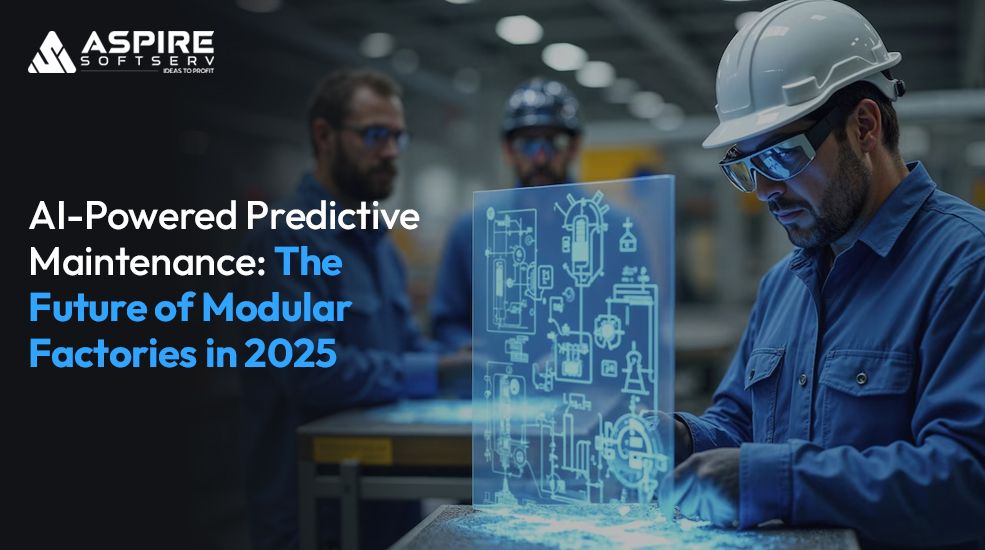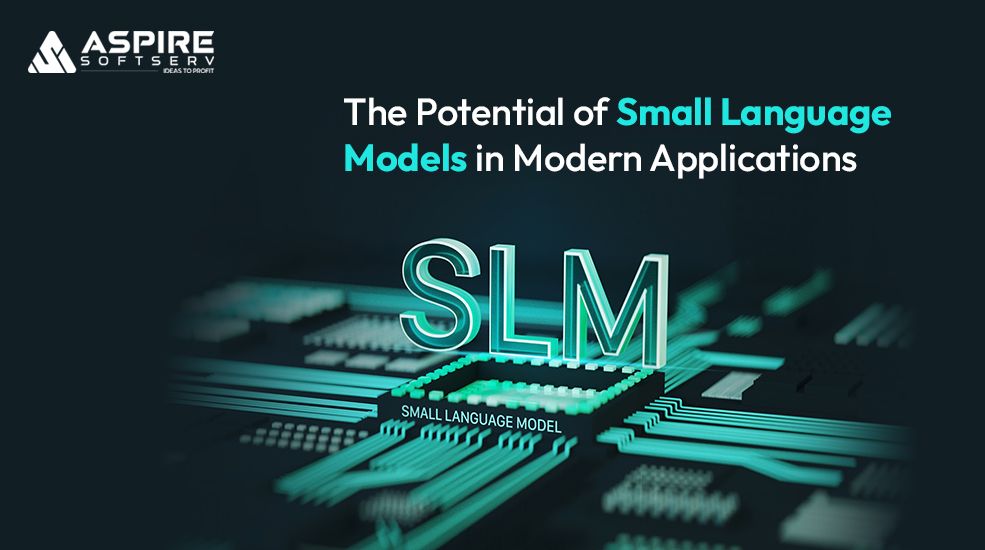
It is important for businesses to understand that the world is changing fast and that the utilization of technology; specifically AI, is inevitable. AI is emerging in organizations and is even changing industries one by one; at first, it impedes the industry most reliant on people, the Human Resources industry. The integration of AI into Human Capital Management (HCM) is not just an upgrade—it's a fundamental shift in how organizations manage their most valuable assets: their employees.
AI is not anymore futuristic idea. AI is being used in businesses of all sizes from small businesses to big corporations something that could act as a tool to enhance operations. Thus, in the framework of this article, we will identify how developments in AI technology impact the sphere of HCM and learn more about the direction that the further evolution of work can take.
1. Conversation AI in Recruitment and Talent Acquisition
As is the case with recruitment, the process usually consumes a lot of time in HR. Recruiting apps are now more sophisticated to read through hundreds of resumes within a few seconds while this was almost taking days or weeks. The process of the screening of resumes and shortlisting of candidates is a very subjective task, which involves the human eye and brain making a decision, often which is very quick but could be wrong but with the help of AI, this margin of error is eliminated.
In fields such as online selling or the selling of drugs, the technique of candidate screening is being conducted through artificial intelligence. These tools screen resumes according to target keywords and previous work history and can also implement video interviews & conduct facial and body language checks on candidates, movements, and stares included. This advanced screening aids organizations to handset superior performers without subjecting the process to biases and human errors.
2. Personalised Employee Development and Learning
Employer development has become an area of interest that can be shaped by AI. An employee is followed with or without his or her knowledge and historical and current performance and behavior to identify the materials that he or she should study. This makes it easy for organizations to train their human resource effectively.
If the employee performs well in a course, AI suggests him to the subsequent level of training material so then it remains interesting and difficult for him. Further, skill gap identification and analysis is done using AI that enables the HR teams to map out development programs right from the employee needs perspective. People are able to get feedback almost instantly by using the help of artificial intelligence and this promotes their career growth.
3. Better Employee Engagement and Retention
The leading challenges in maintaining successful organizational efforts include employee engagement and retention. Engaged employees are focused, productive, and satisfied with their work; this way, they are more willing to stay on with the organization. AI tools drastically impact the improvement of employee engagement and retention rates.
Another powerful application of AI pertains to the analysis of emails and posts for their communications, technical, and soft skills, which later pulls out potential issues the HR teams can address to ensure control before they escalate into major causes of employee dissatisfaction.
This will enable the organization to know the strong points of the employees in communication, either written or face-to-face, and hence give them jobs in their comfort zone for higher productivity and better job satisfaction. They will have a balanced work-life, their communication skills will be improved, and they will be more engaged, hence increasing the retention of skilled employees.
4. Data-Driven Decision-Making in HR
AI empowers HR departments with real-time data and analytics, making decision-making faster and more accurate. AI-driven analytics platforms can process vast amounts of employee data and provide insights that would take weeks to uncover manually. These platforms detect trends in employee engagement, predict future workforce needs, and recommend actionable strategies.
In addition, AI helps organizations analyze historical data to make informed decisions on hiring, succession planning, and addressing skill gaps. By anticipating future needs, businesses can remain agile and prepared for technological advancements.
5. AI-driven Workforce Management and Optimization
Effective workforce management is crucial for any organization striving for productivity and cost-efficiency. AI tools are now assisting in optimizing employee schedules, resource allocation, and performance monitoring.
- Resource Allocation: AI ensures the right resources are available for the right tasks at the right time.
- Performance Monitoring: Continuous monitoring and feedback loops help employees stay on track and improve their performance.
- Predictive Scheduling: AI can predict staffing needs, helping managers create schedules that minimize downtime and maximize productivity.
Challenges and Considerations
AI provides very many benefits in human capital management; in the process, however, it faces challenges for organizations to tap into its full potential.
Chief among them are data privacy and security. AI requires massive amounts of data, which have to be protected from violation and unauthorized access. Organizations should carry out proper data protection measures to secure employee privacy.
Artificial Intelligence in managing human capital also requires changes in management. Employees will always be resistant to any new technology being implemented within the working environment when they see that it may replace their role. Organizations must invest sufficient amounts of time in training, communicating with, and sharing how AI can better employees' roles rather than taking those roles away.
See Also: AI in Banking
Conclusion
AI has undeniably transformed Human Capital Management, providing organizations with tools to enhance recruitment, employee development, engagement, and overall decision-making. By using AI in HR, businesses can increase efficiency, streamline processes, and stay competitive.
However, organizations must also tackle challenges like data privacy and employee resistance. With the right approach, AI can unlock significant opportunities for growth and innovation in managing human capital.
Transform Your Human Capital Management (HCM) With AI

